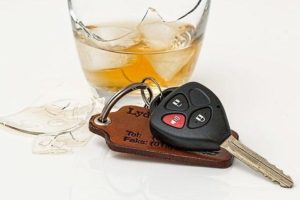Have you ever had an experience that left you feeling shaken and fearful, to the point where even the thought of revisiting it makes your heart race? For many motorcycle riders, a terrifying accident or a close call on the road can be a traumatic event that leaves them hesitant to ever hop back on their beloved bikes. But fear doesn’t have to be a permanent roadblock on your journey towards enjoying the thrills of riding again. In this blog post, we will explore the steps you can take to conquer your fear and rebuild your confidence to ride a motorcycle once more. With compassion and understanding, we will guide you through the process of overcoming your fears, so that you can once again experience the exhilaration and freedom that comes with riding on two wheels.
Understanding the Source of Fear
Understanding the reasons behind fear in the wake of a motorcycle accident requires delving into the environment where these unfortunate incidents take place. Operating a motorcycle demands exceptional skill and unwavering focus to ensure safety, yet even the most seasoned riders may be caught off guard by unforeseen hazards or unpredictable circumstances. Therefore, it is not uncommon for individuals to feel nervous about riding again after experiencing a motorcycle accident. The aftermath of such an event can leave a lasting impact on one’s confidence and create an understandable apprehension towards getting back on the bike. However, it is crucial to approach this issue with compassion and empathy, recognizing the challenges faced by those who have encountered this traumatic experience. By acknowledging their fears and offering support, we can help them regain their confidence and find solace in the joy of motorcycle riding once more.
Moreover, it is completely understandable why individuals may feel nervous to ride a motorcycle again after experiencing a crash. The exposure to the elements that motorcyclists endure, combined with the heightened risk of injury, can create a lingering sense of fear and worry. It is important to acknowledge these emotions and approach the recovery process with compassion and understanding. Building confidence and overcoming such anxieties takes time and patience. Seeking support from loved ones or joining support groups can play a vital role in the healing journey. By addressing these concerns and taking necessary precautions, it is possible to regain the joy of riding a motorcycle and experience the freedom it brings while prioritizing personal safety.
Learning to Identify and Manage Triggers
Understanding how to identify and manage triggers is absolutely crucial for every motorcycle rider, especially for those who have experienced a motorcycle accident and might feel nervous to ride again. Triggers can manifest in various forms, whether it be a specific sound that brings back harrowing memories or encountering a particular route that evokes fear. By being attuned to these triggers, riders can effectively recognize their presence and take the essential steps to ensure their safety on the road. It is therefore paramount to approach this issue with utmost compassion and empathy, acknowledging the apprehension that individuals may feel following a traumatic experience. With this understanding, riders can embrace a more engaging and supportive tone to promote a proactive attitude towards managing triggers and ultimately fostering a safer environment for all motorcycle enthusiasts.
Thereafter, it is understandable that one might feel nervous to ride a motorcycle again after a crash. However, by embracing a compassionate and engaging approach to understanding our emotional reactions, we can learn how to identify and manage triggers effectively. Taking the time to analyze our own responses when these triggers are not present allows us to gain valuable insights into our emotional state and build resilience. This self-awareness can tremendously benefit us by equipping us with the necessary tools to remain in control of our bike and ensure our safety while riding. It acts as a shield that protects us from potential dangers, empowering us to confidently return to the joy of motorcycle riding. With this newfound knowledge and preparedness, we can reclaim the freedom of the open road, knowing that we have the capability to navigate any challenging situation that comes our way.
Re-Familiarizing Yourself with Motorcycle Riding Techniques
If you’ve recently experienced a motorcycle accident, it’s completely understandable to feel nervous about getting back on the road. Re-familiarizing yourself with motorcycle riding techniques is an essential step in preventing potential accidents and injuries. After going through such a traumatic event, it’s crucial to approach your return to riding with compassion and care for yourself. Taking the time to refresh your memory on proper techniques and safety precautions will not only boost your confidence but also contribute to a safer riding experience. By addressing your concerns and gradually reintroducing yourself to the joy of riding, you can overcome your anxiety and find the courage to embrace the freedom of the open road once again. Remember, your well-being is paramount, and taking the necessary measures to ensure your safety is a testament to your strength and resilience.
When it comes to motorcycle accidents, one of the most crucial aspects to consider is defensive riding. By familiarizing yourself with the basics, such as scanning the roads for potential danger, maintaining a safe speed, and adhering to the rules of the road, you can greatly enhance your safety on the motorcycle. These skills not only make you a more confident rider but also significantly decrease the likelihood of being involved in another accident. Taking the time to understand and utilize defensive riding techniques demonstrates a genuine concern for your well-being and the well-being of others on the road. By scanning the roads effectively, you can proactively identify potential hazards and react accordingly, allowing you to anticipate and avoid dangerous situations. Maintaining a safe speed ensures that you have ample time and space to react to any unexpected obstacles or sudden changes in traffic. Equally important is following the rules of the road, as this establishes clear communication with other drivers and keeps everyone on the same page. By incorporating these fundamental elements into your riding routine, you not only safeguard yourself but also contribute to fostering a safer environment for all road users.
Besides gaining valuable knowledge, taking refresher courses or talking to experienced riders can also help ease the anxiety and fear that often accompanies getting back on a motorcycle after a crash. It is completely normal to feel nervous to ride a motorcycle again after a crash, as the experience can be traumatizing and leave lasting emotional scars. However, by reaching out to those who have walked a similar path, you can find comfort and support in knowing that you are not alone. They can offer empathy, share their own experiences, and provide guidance on how to rebuild your confidence and overcome any lingering worries. With their compassionate advice and insights, you can gradually regain your trust in yourself and the joy of riding a motorcycle. Remember, it’s okay to take things at your own pace and prioritize your mental health and well-being throughout this journey.
Developing an Effective Support System
Developing a strong support network is absolutely crucial when it comes to dealing with the aftermath of a motorcycle accident. For those who have experienced such a traumatic event, the journey towards recovery can be filled with fear and uncertainty. Many individuals may find themselves apprehensive and nervous to ride a motorcycle again after a crash, which is completely understandable. However, by surrounding themselves with a reliable support system, they can find the help and encouragement they need to regain their confidence. Whether it’s family members, friends, or support groups specifically tailored for motorcycle accident survivors, having a compassionate and engaging network can make a significant difference in their healing process. These individuals can provide emotional support, share personal experiences, and offer guidance on how to gradually overcome the anxiety associated with getting back on a motorcycle. Additionally, they can assist in finding professional help such as therapy or rehabilitation services that address the physical and mental aspects of recovery. Building this network of understanding individuals will not only help those affected by motorcycle accidents navigate the challenges they face, but it will also foster a sense of belonging, reminding them that they are not alone in their journey towards reclaiming their passion for riding.
Next, it is crucial for individuals impacted by motorcycle accidents to understand that recovery involves not only professional care but also emotional support from friends and family. Reaching out and openly communicating their needs to loved ones is vital in this healing process. By expressing their concerns, fears, and anxieties, survivors can receive the compassion and understanding they require to navigate through the challenges ahead. Whether it is a listening ear, a comforting presence, or practical assistance, the support network can play a paramount role in promoting emotional well-being and facilitating physical recuperation. Moreover, knowing that they are not alone in their journey can provide a sense of solace and strength. Together, with professional care and unwavering support from their loved ones, those affected by motorcycle accidents can embark on a healing path infused with hope, resilience, and the promise of brighter days to come.
We want to reassure you that conquering your fear and building your confidence to ride a motorcycle again is absolutely possible. We understand the fear and hesitation that can arise after a traumatic experience, but we firmly believe that fear should never hold you back from pursuing your passion. By taking small, manageable steps, seeking support from loved ones or professional resources, and focusing on the joy and exhilaration that riding brings, you can gradually regain your confidence and embrace the freedom of the open road once more. Remember, you are not alone on this journey, and with compassion and understanding, we are here to guide you every step of the way.
Call or text 1-800-668-6729 or complete a Free Case Evaluation form



